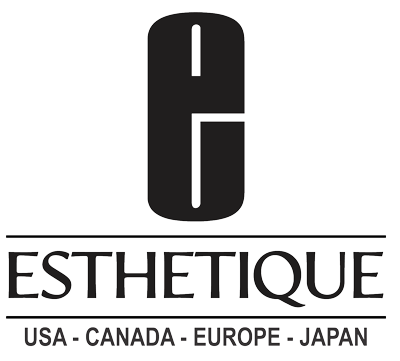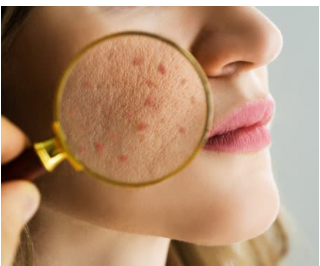Acne – The most commonly dreaded of all skin conditions. Acne Vulgaris (common acne and often referred to as zits or pimples) is the single most troublesome skin disease for teens and young adults. Fortunately, it is also one of the most manageable chronic skin problems.
Acne problems can begin early, even before preteen years and can continue for some all through middle adulthood. Early medical treatment becomes a necessity in order to prevent long term problems such as scarring and discoloration of your skin. Our Dermatologists treats acne with a variety of acne control programs which may include one or more of the following combined in a custom program for your unique needs:
Treatment Choices and Decisions
We want to help you make an informed decision about your cosmetic procedures options. To that end, our Dermatologists and staff will discuss your procedures in detail and show you before and after photos to help you envision your results. Our staff are warm, compassionate and most importantly committed to ensuring your privacy. We believe that each patient is unique and we want you to leave the office feeling better-educated, informed and satisfied.
Visit any branch of Aesthetic Clinic by Esthetique to find the acne treatment that's right for you: 0301-1199-556.
• Acne Treatment using mesotherapy technique with the combination of top most active ingredients to get rid of acne just in 3 to 5 sessions and is pocket friendly as well.
⦁ Effective products which contain physician strength ingredients to help treat nearly all stages of acne – may include both prescribed and non-prescription products
⦁ Blue Light Therapy treatments for mild to moderate acne
⦁ Pulsed Light Acne Treatment using the advanced Palomar LuxV system
⦁ Oral antibiotics, topical antibiotics and other prescription anti-acne products or hormone regulators such as birth control pills to reduce and prevent acne activity.
⦁ Accutane (Isotretinoin) for Severe, Resistant Acne and Cystic Acne.
⦁ Photodynamic Therapy for moderate to severe and cystic acne
Palomar LuxV™ Acne Treatment
For many years, acne sufferers have been forced to rely on topical and oral medications to treat their blemishes, cysts and inflammation. These medications tend to have inconsistent results and many side effects.
Patients have access to a new option that uses pulsed light instead of pharmaceuticals to clear acne: the Palomar LuxV.
The success of light-based acne treatments should be no surprise; sun exposure has long been known to have a beneficial effect on patients with acne. This StarLux system uses concentrated pulses of light to attack acne on two fronts:
⦁ The treatment kills the bacteria that causes your acne
⦁ Acne treatment damages the overactive glands that trap the bacteria and lead to more acne.
Why Choose LuxV?
The LuxV acne treatments are quick and nearly painless. Although the system is very powerful, most patients describe the treatment session as a ‘snapping’ sensation, which causes mild discomfort at most. After the treatment, you may have some redness for about maximum to a week, but that quickly fades and you can enjoy the effects of much improved skin and significantly lower blemish count.
Every patient receives a personalized treatment program to give the best results. Each acne program is individually tailored for your specific acne condition and level of severity. We will work closely with you in creating the most effective treatment plan to ensure you have the best possible response - and most importantly - skin you can live with.
What about Accutane?
Accutane is often now a "last resort" treatment for severe acne. Serious side effects have prompted physicians to first implement treatments that are less likely to cause systemic problems. In the event your acne is non-responsive to these first line procedures, you may be a candidate for a strictly FDA-regulated and monitored course of Accutane.
Acne Overview
Acne is caused by a combination of excessive sebum production (sebum is the natural lubricant your body produces to keep your skin supple), dead skin cells and a form of bacteria called P. acnes.
Acne is a medical condition that is not your fault. It is most often caused by hormonal changes which affect your body’s ability to regulate sebum production and skin cell turnover.
Acne can begin at any age but typically shows up during puberty when hormones begin to surge. Nearly 85% of those aged 14 to 24 deal with some level of acne, even if it is only the occasional “zit” that shows up the day before a date or a job interview.
All acne is not alike. Frequently misinterpreted as adult acne, Acne Rosacea is a different condition. Treatment programs are not the same for this type of acne as for Acne Vulgaris. If you are an adult and your acne is “new,” you should have a medical evaluation so you can receive the correct care for this condition.
Regardless of the type or grade of acne that you have, you will benefit from using the correctly formulated products.
Comedo or Whitehead
The initial and least apparent form of acne, called the comedo (KOM-e-do) or comedone, is simply an enlarged and plugged pore. If the plugged pore, or comedo, stays beneath your skin, it is called a closed comedo and produces a white bump called a whitehead.
For those who experience a very mild acne or the occasional pimple, an acne-effective product line of facial cleansers, toners and topicals may be chosen. These treatment products are especially formulated to combat acne and gently treat acne-prone skin. Regardless of the type or grade of acne you are experiencing, you will benefit from using properly selected products.
Multiple enlarged whiteheads that persist on your skin for a long time constitute a more problematic grade of acne. Treatment is available using a personalized combination of acne facial peels, topical retinoids and microdermabrasion.
A comedo that reaches the surface of your skin and opens up is called a blackhead because it looks black on the skin’s surface. This black discoloration is not due to dirt, but from oxidation of the oils on the skin. Both whiteheads and blackheads may stay in your skin for a long time.
Acne patients who suffer from mild to moderate acne often benefit from microdermabrasion, acne extractions and glycolic chemical peels. These programs are effective because they cause an increase in cell turnover coupled with the immediate application of treatment solutions or acne-targeting alpha and beta-hydroxy acids; thus preventing the acne from progressing to more severe stages that are usually accompanied by inflammation and become more difficult to control.
Acne Severity Scale – Acne Grading Scale Tool
Acne often starts with a comedone and can progress to more severe forms if not treated.
Papules:
Inflamed small, pink bumps on your skin which can be tender to the touch.
Pustules (pimples):
Papules topped by pus that may be red at the base
Nodules:
The large, painful, solid forms of acne that are lodged deep within the skin
Cysts:
Deep, painful, pus-filled lesions that can cause scarring. Cystic acne can have profound psychological impact and should always be treated as early as possible by a dermatologist. Response is rapid when treated with stronger acne programs.
What Makes Acne Worse?
⦁ The progestogen-only contraceptive pill may make acne worse.
⦁ In women, the hormone changes around the monthly period may cause a flare-up of breakouts.
⦁ Thick or greasy make-up may, possibly, make acne worse. Non-comedogenic or oil-free products are most helpful for acne prone skin types.
⦁ Picking and squeezing the acne may cause further inflammation and scarring.
⦁ Sweating heavily or being is high humidity conditions may make acne worse. For example, doing regular hot work in kitchens.
⦁ Acne may develop under tight clothes. For example, under headbands, tight bra straps, tight collars, etc. This may be due to increased sweating and friction under tight clothing.
⦁ Some drugs can make acne worse. For example, phenytoin which some people take for epilepsy, and steroid creams and ointments that are used for eczema. Do not stop a prescribed drug if you suspect it is making your acne worse, but tell your doctor. An alternative may be an option.
⦁ Anabolic steroids (which some body-builders take illegally) can make acne worse.
Some Myths and Wrongly Held Beliefs about Acne
⦁ Acne is not caused by poor hygiene. In fact, excessive washing may aggravate acne and make it worse by removing the skin's natural protective barrier.
⦁ Diet may have no effect on acne. For example, there is no evidence that chocolate, sweets, or fatty foods cause acne or make acne worse, but there is evidence that certain dairy products may contribute to increased acne.
⦁ Acne is not just a simple skin infection. The cause is a complex interaction of changing hormones, sebum, overgrowth of a normally harmless bacteria and inadequate skin cell turnover.
⦁ Acne cannot be cured by drinking lots of water.
⦁ There is no evidence that sunbathing or tanning beds will help to clear acne.
⦁ Some people believe that acne cannot be helped by medical treatment and that you must "outgrow" the condition. This is not true. Treatments usually work well if used correctly and will prevent scarring and the intense psychological pain brought on by lowered self-esteem.
Sorry, there are no products in this collection

